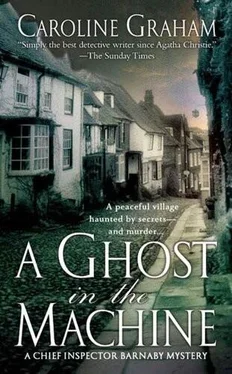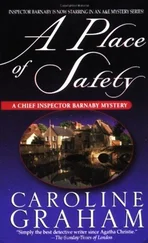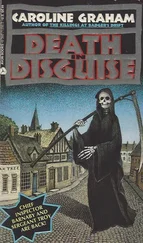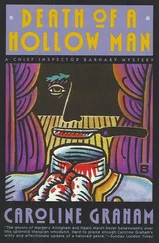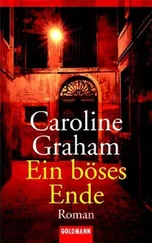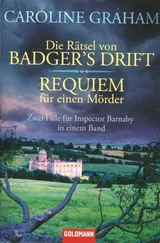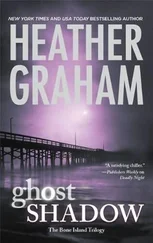These reflections had brought her to the gate of Kinders. It stood wide open, which was strange. Dennis was meticulous, not just in closing but also in fastening gates. Gates, doors, cupboards even. And lining up edges, straightening cutlery; even drawers were closed with hairline precision.
Just as she had three evenings ago Benny made her way into the house via the garage. No warmth from the cooker tonight, no fragrant smells of turbot in white wine. Benny reprised her “Cooee?” but without much confidence. For no reason she could name she felt sure the flat was empty. But she checked the other rooms, just in case. Finally she approached the war room. The door was shut but Benny, emboldened by her previous successful sortie, opened it and stepped briskly inside.
When Benny came back Kate and Mallory were still on the terrace, relaxing in the amber haze of the setting sun. They had been drifting idly in and out of conversation, talking of nothing special while shadows from the giant cedar slowly spread across the lawn, finally disappearing into the long grass.
Mallory said, “Here she is.”
Benny had appeared at the corner of the house and was making her way towards the terrace. She was walking slowly in an odd sort of shuffle. Then, as she came closer, Kate saw that her whole body was stiff and unnaturally straight, the arms held up at a sharp angle before her, poised to return an embrace. Like a bad actor playing a zombie.
Kate sprang up, knocking over her glass of Pimm’s. Her welcoming smile vanished as she cried out Benny’s name and ran towards her.
“Benny – what is it? What’s wrong?” She took Benny in her arms and embraced a column of stone. “Tell me. Tell me. ”
Benny made an unintelligible sound.
“Oh God—Mallory—” He was already by her side. “What shall we do? Benny …”
“She must have had some sort of stroke.”
“Let’s get her inside.”
“Rook.”
“What?” Now, in the glow from the terrace lamps, Kate experienced fully the stamp of horror on Benny’s ghastly countenance, the disturbed violent agony in her eyes. “What do you mean?”
“I’ll find a doctor.”
“At this hour?”
“There’s always someone for emergencies.”
“It’ll take too long. Ring for an ambulance.” Kate put her arm around Benny and tried to persuade her into the house. “And then,” she called after Mallory, “go round to Kinders.”
“ Aahhhhh …”
“All right, Ben. It’s all right.” Kate, knocked off balance by the scream blasting directly into her face, could hardly get the words out. “Come…come and lie down, darling.”
“…rook…rook…”
“That’s right – lean on me. Lean on Kate…”
Mallory ran, first to the telephone and then from the house. He passed a little knot of people at the gate, their faces avid with the happy curiosity of the uninvolved. No doubt Benny had been spotted by someone making her blind journey, her dreadful sleepwalk back along the High Street. Pushing past them, sensing them snuffling and sniffing behind him like hounds, Mallory wondered if he was, after all, cut out for life in a small village.
At Appleby House Kate was trying to make Benny comfortable. An impossible task, which anyway didn’t signify, for whatever she did or said seemed not to be understood in any recognisable way.
When the ambulance arrived the paramedics very gently, even tenderly, carried out the necessary checks. Benny spoke once more – “Just like the rook” – but the words were addressed to the night air and her eyes stared blankly through them all.
Kate found a nightdress and toothbrush, took the duck, black and shiny now, from the oven, threw it in the bin and put her coat on. Just before she left, the telephone rang. It was Mallory to say that something terrible had happened at Kinders and that he had notified the police.
By the time the patrol car arrived a group of forty or so people had gathered outside Dennis’s house. Most were on the little green by the pond opposite, but a few crowded round the gate. As the uniformed officers pushed by they were questioned, unsuccessfully, as to what was going on. Denied any solid description of events, people felt obliged to make up a free-wheeling scenario of their own.
“They’ll be putting that blue and white tape round next.”
“What for?”
“Protect the scene of crime.”
“How do you know there’s been a crime?”
“Yeah – maybe he’s just had an accident.”
“You don’t call the old Bill out for an accident.”
“True. Could be a burglary?”
“Look who’s letting them in.”
“Him from Appleby House.”
“One thing I do know—it’ll be something to do with them machines.”
“Terrible things.”
“Doris Crudge – she reckons there’s an iron cage in there. For roasting people.”
A concerted gasp of horrified satisfaction.
“Sounds like he got what he deserved then,” said the man with the hot tip about the tape.
Mallory closed the front door behind the two officers and leaned back on it, legs trembling. His face was salt white, clammy and beaded with sweat. He had been very sick and still felt extremely nauseous.
“Are you all right, sir?” asked the younger policeman. “I think you’d better sit—”
“What we’ve been given,” cut in the other, a Sergeant Gresham, “is a fatal accident which you – Mr. Lawson? – discovered this evening. You then made a call to the emergency services at eight seventeen. Is that correct?”
“Yes…that is, no.” Mallory stumbled, somehow groped his way into the sitting room and fell into a chair. “I made the call but I didn’t discover it – him.”
“So who did?”
“Her name’s Benny Frayle. But she’s in deep shock. They’ve taken her to hospital.”
“That Stoke Mandeville?”
“No idea.”
“Right. Now—if you’ll just show me—”
“I’m not going in there again.” Memory brought more drowning waves of nausea. The sergeant loomed suddenly closer, then swam out of Mallory’s vision. A hand on the back of his neck eased his head down between his knees.
“Don’t overdo it, Palmer. You’ll be running him a bath next.”
“Sergeant.”
“And try and get hold of the dead bloke’s doctor.”
Gresham disappeared. He checked out the kitchen and tiny bedroom. Then opened the door at the end of the hall and stood on the threshold of the vast awful space, his jaws agape with sheer astonishment.
The sergeant had not the slightest interest in history. He had never been to a museum in his life and so, confronted with these astonishing weapons of destruction, had no idea what they were. At first he thought they might be some wonky form of modern art, sculptures or suchlike. Then he noticed the huge crossbow. A weapons freak, then. A weirdo. They were up to all sorts, these survivalists.
The body lay face downwards, huddled against the apparatus that looked like a giant’s catapult. It was wearing men’s clothes, very light tweed but still heavy going, the sergeant would have thought, in this weather. Even then you’d have to take them off to prove he was a man ’cause there was not much left of his head. Spread all over the place, it was. Red stuff both runny and jellified, grey stuff, white stuff and pounded bits of bone.
None of this fazed Sergeant Gresham. He was a veteran. Thirty years of examining evidence following the discovery of murder victims. Or suicides. Not to mention trying to sort out the unspeakable carnage resulting from the worst traffic accidents. Gresham had been there. And he had done all that.
Now he noticed a large slick of vomit just a few feet from the corpse and was glad he hadn’t brought young Palmer into the room with him. One person chucking up was more than ample.
Читать дальше
